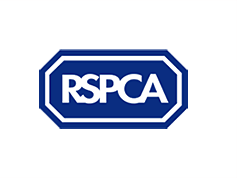Latest News and Events
BIRD FLU (AVIAN INFLUENZA) - INFORMATION

Avian influenza (bird flu) advice for the public
Bird flu is a notifiable, infectious disease that affects both wild and kept poultry. The disease is taken very seriously as it's devastating to birds, spreads very fast and whilst some strains have the potential to jump from birds to humans, this is very rare.
On Wednesday 3 November 2021, the UK's devolved administrations made a decision to declare an Avian Influenza Prevention Zone (AIPZ) across the whole of the UK to help mitigate the risk of the disease spreading.
- Avian influenza (bird flu) is a notifiable animal disease. If you suspect any type of avian influenza in poultry or captive birds you must report it immediately by calling the Defra Rural Services Helpline on: 03000 200 301. In Wales, contact: 0300 303 8268.
- If you find dead wild waterfowl (swans, geese or ducks) or other dead wild birds, such as gulls or birds of prey, you should report them to the Defra helpline (03459 33 55 77 - please select option 7). DO NOT TOUCH OR PICK UP any dead or visibly sick birds that you find.
-
All bird keepers (whether you have pet birds, commercial flocks or just a few birds in a backyard flock) must keep a close watch on them for signs of disease and maintain good biosecurity at all times. This is especially relevant if your birds are in a Higher Risk Area (HRA). If you have any concerns about the health of your birds, seek prompt advice from your vet.
You should register your poultry, even if only kept as pets, so we can contact you during an outbreak. This is a legal requirement if you have 50 or more birds. Poultry includes chickens, ducks, turkeys, geese, pigeon (bred for meat), partridge, quail, guinea fowl and pheasants.
Unfortunately, we are unable to attend or respond to any incidents relating to birds at the moment. Due to the potential risks to your own health and safety, we would advise you not to approach or handle the bird yourself. If you have already touched the bird, please wash your hands immediately, along with any surfaces you may have made contact with. We appreciate that it is distressing to not be able to help an animal that is suffering and we are working round the clock to provide our officers with the correct PPE and training as set out by recent government guidelines
For the latest information and advice, including how to keep your own poultry safe in England, please visit the Defra website.
Published: 9 November 2021


